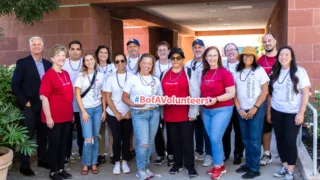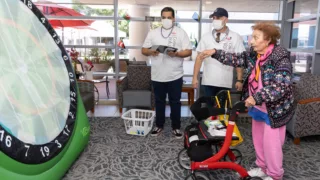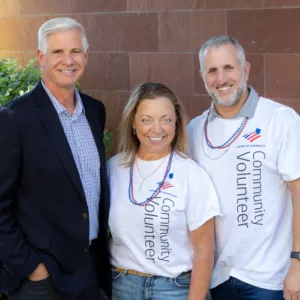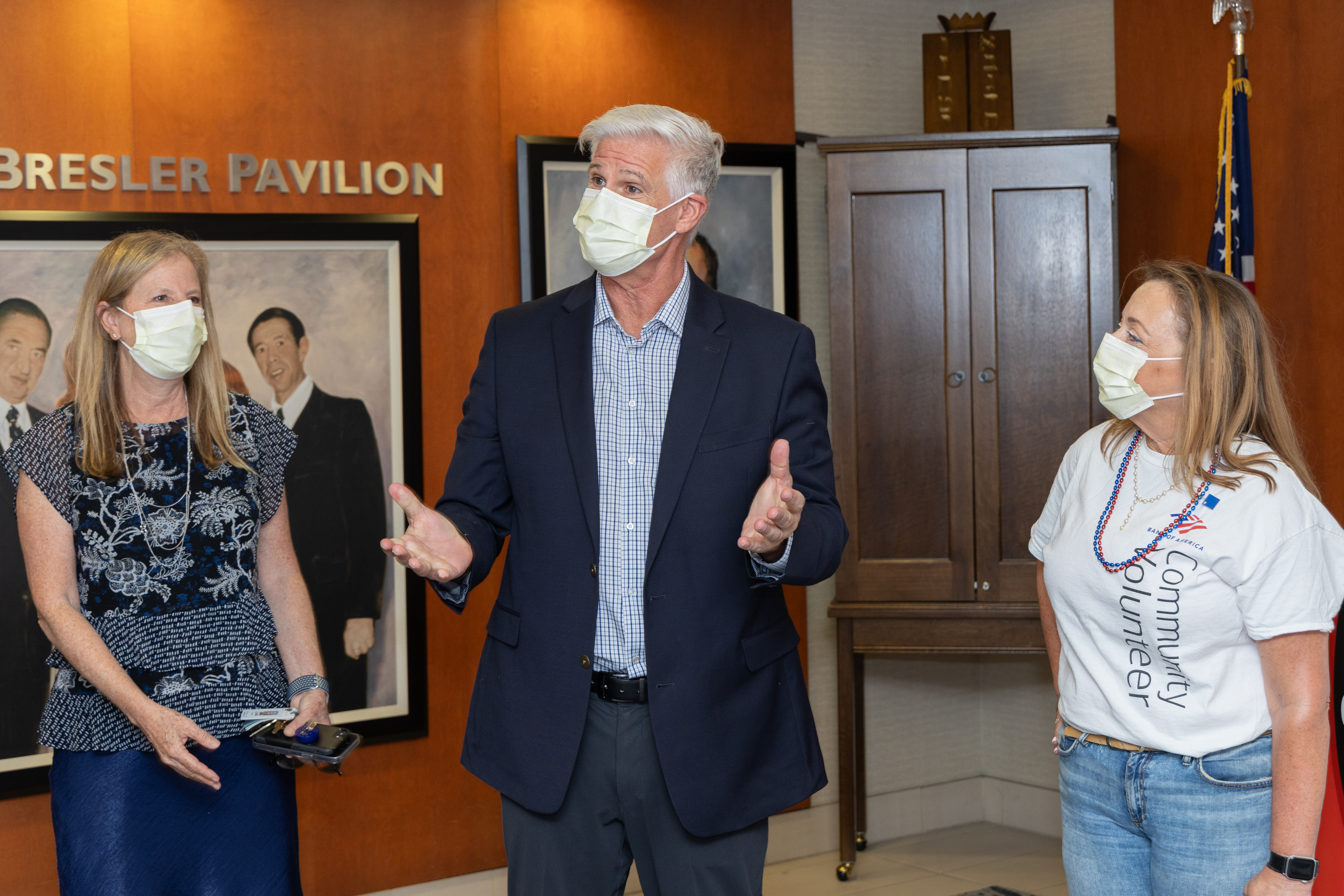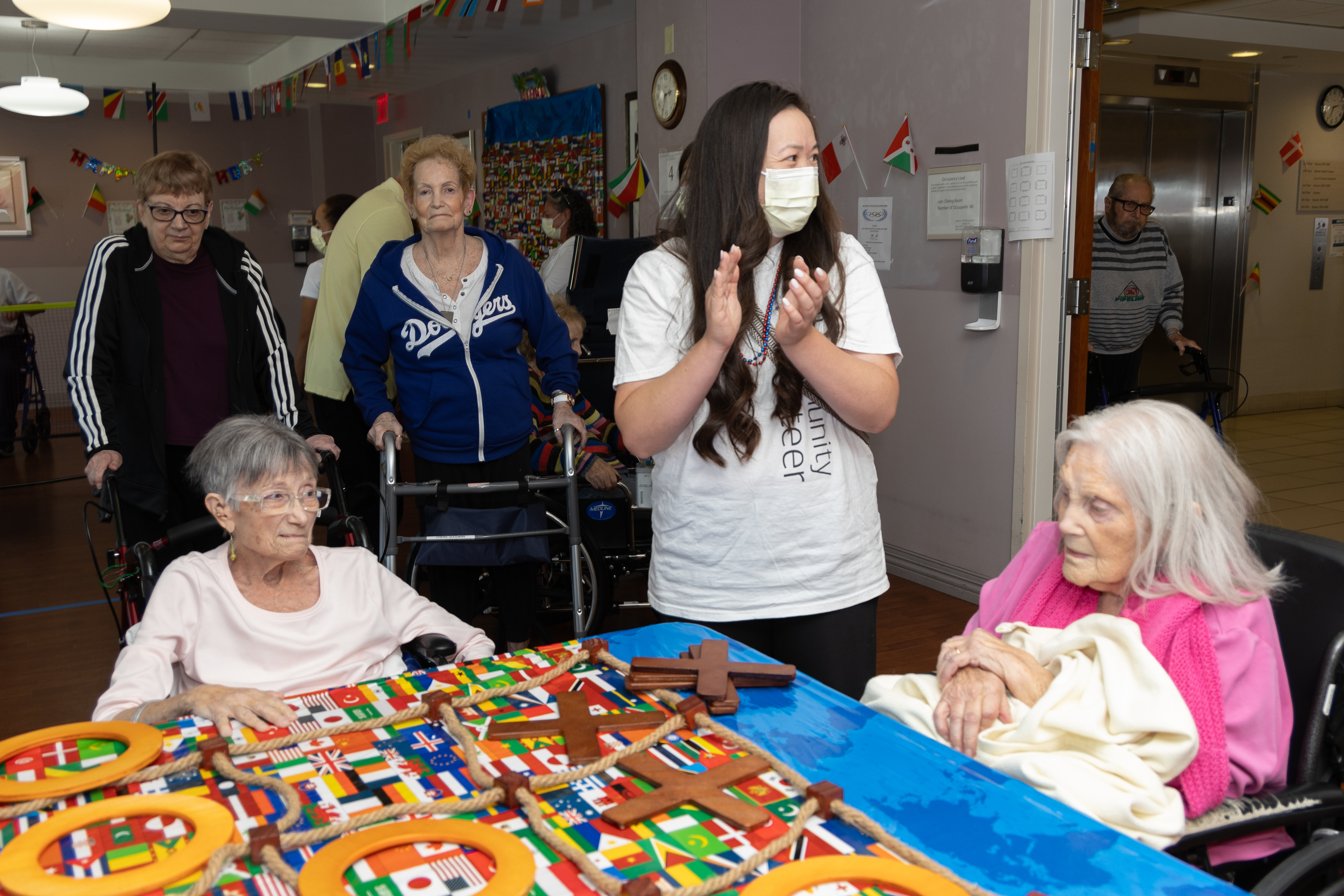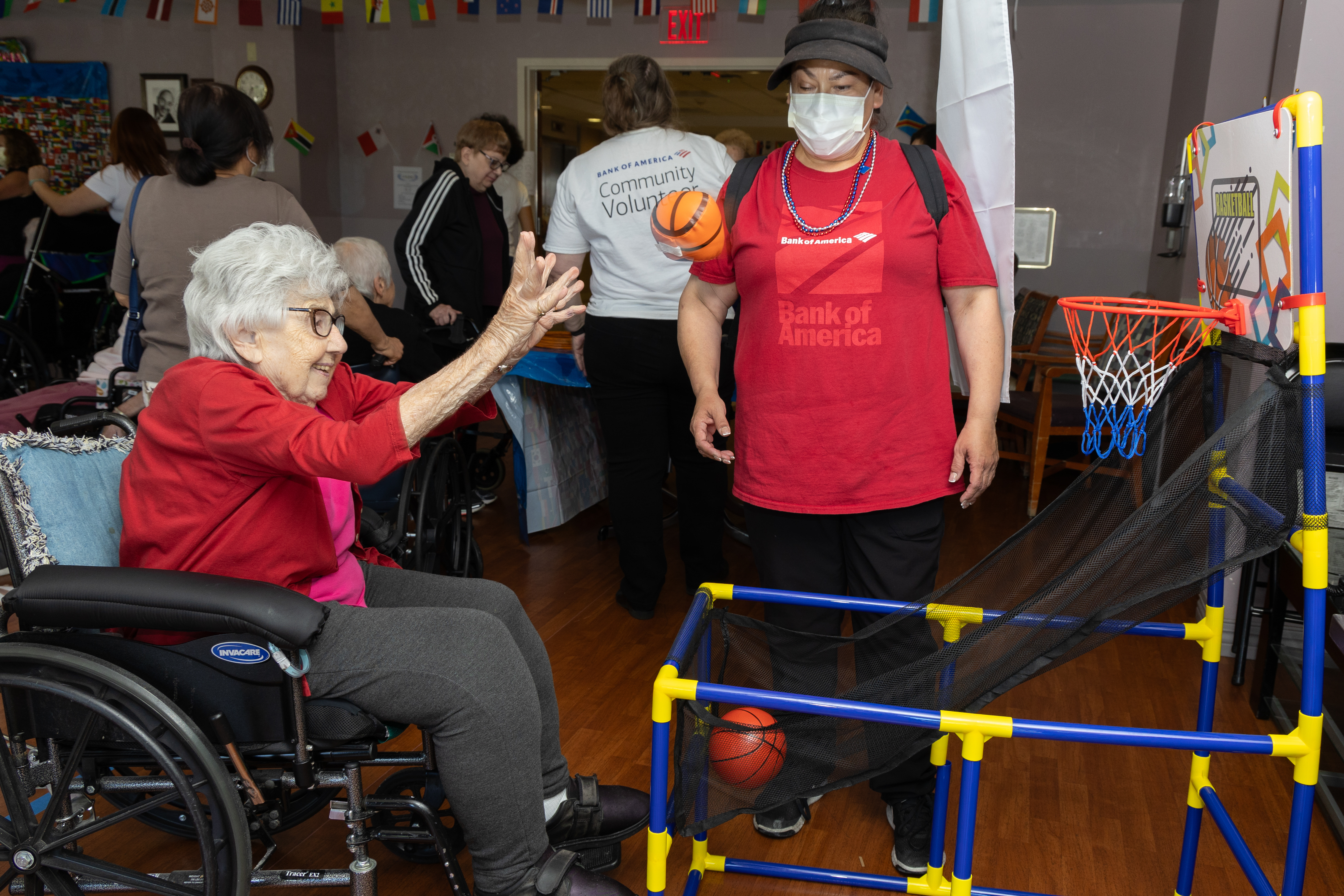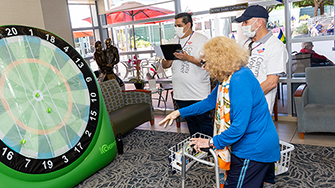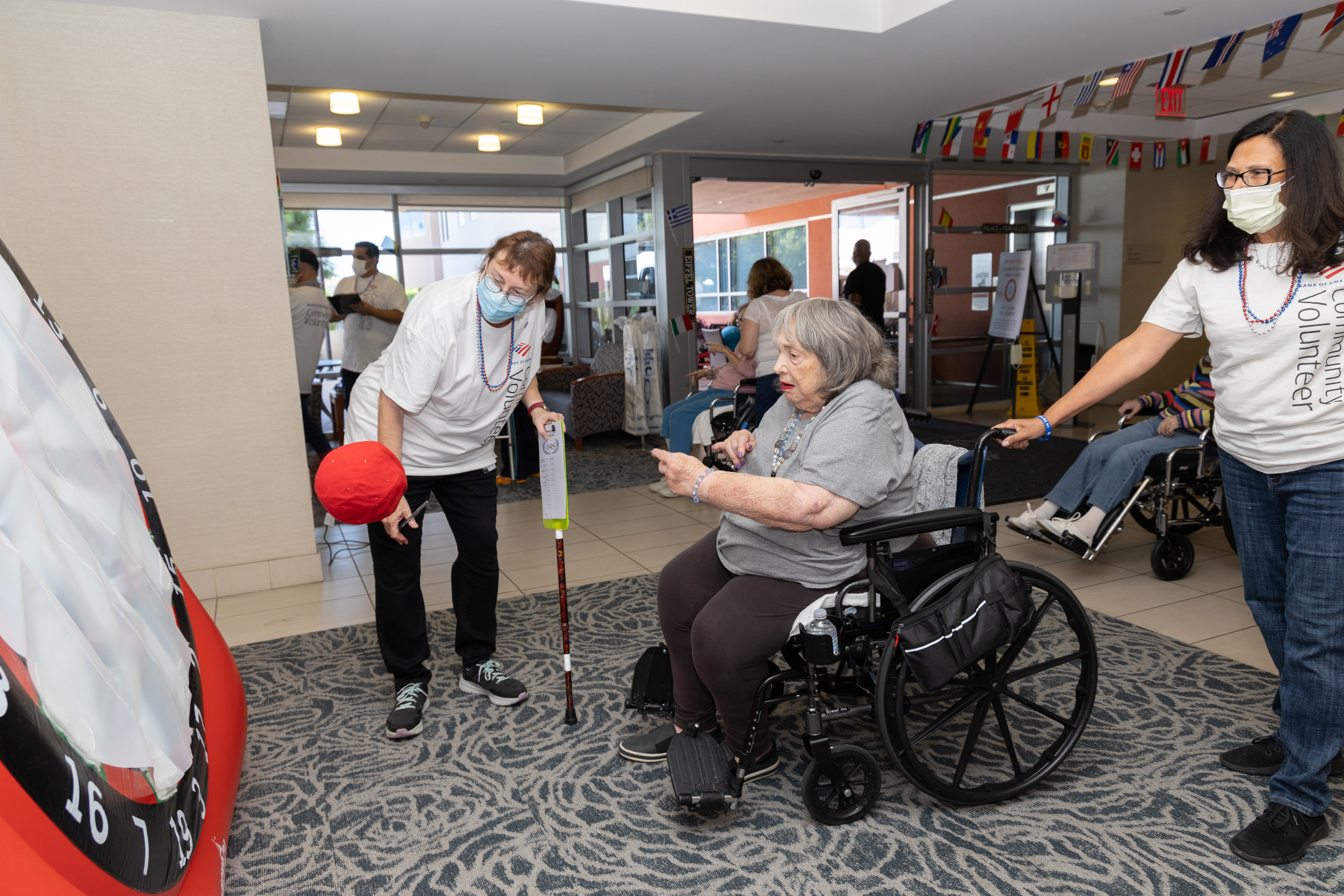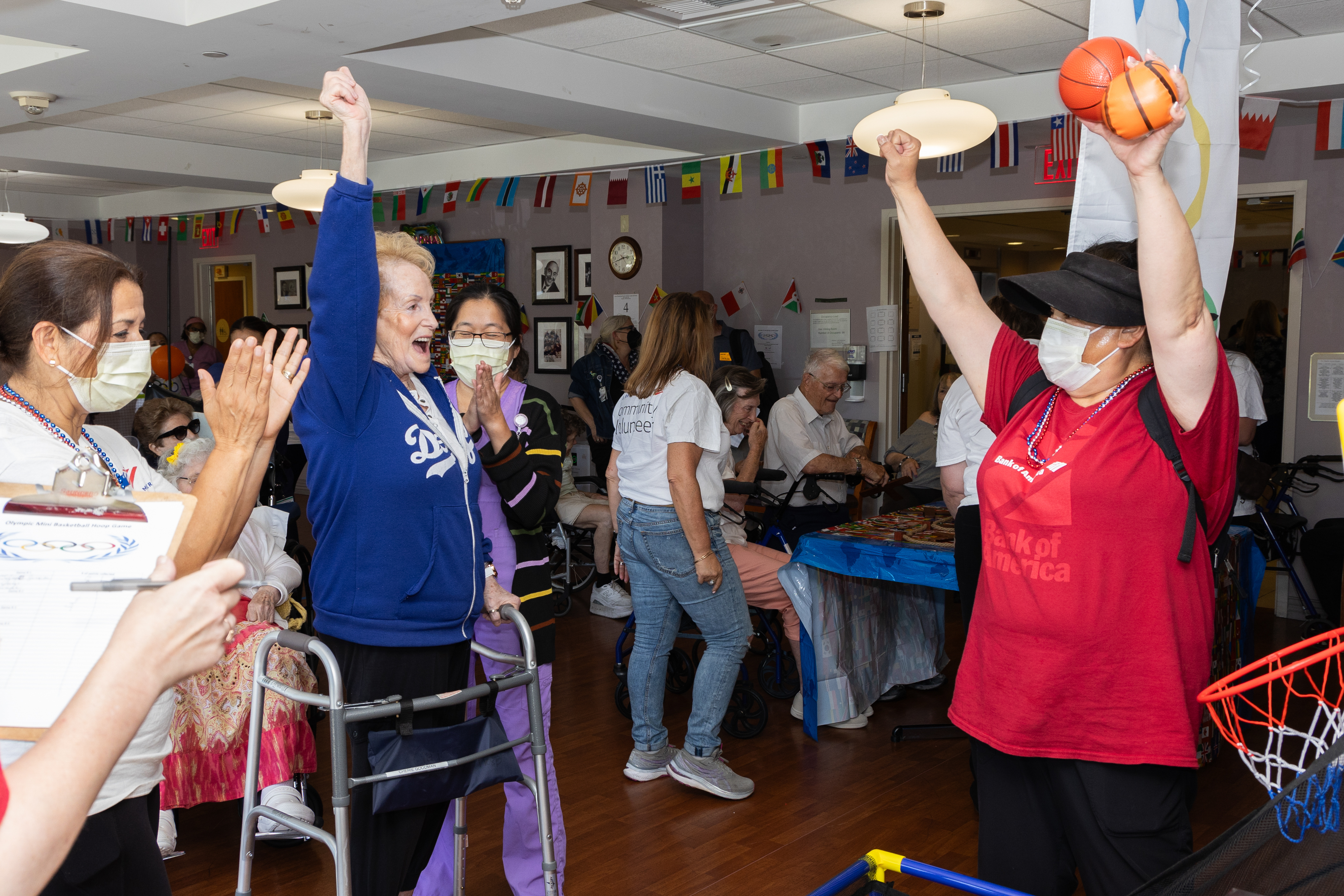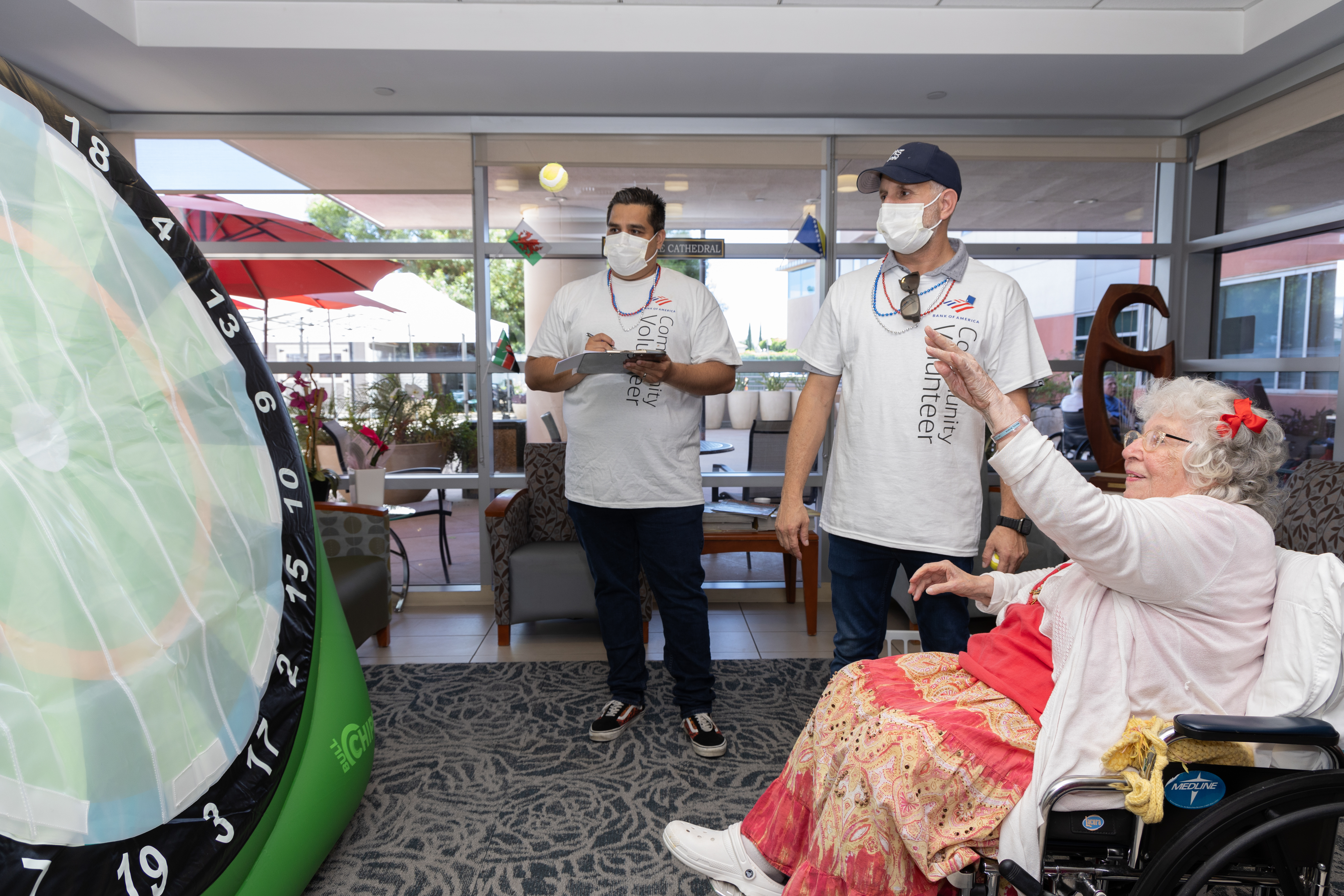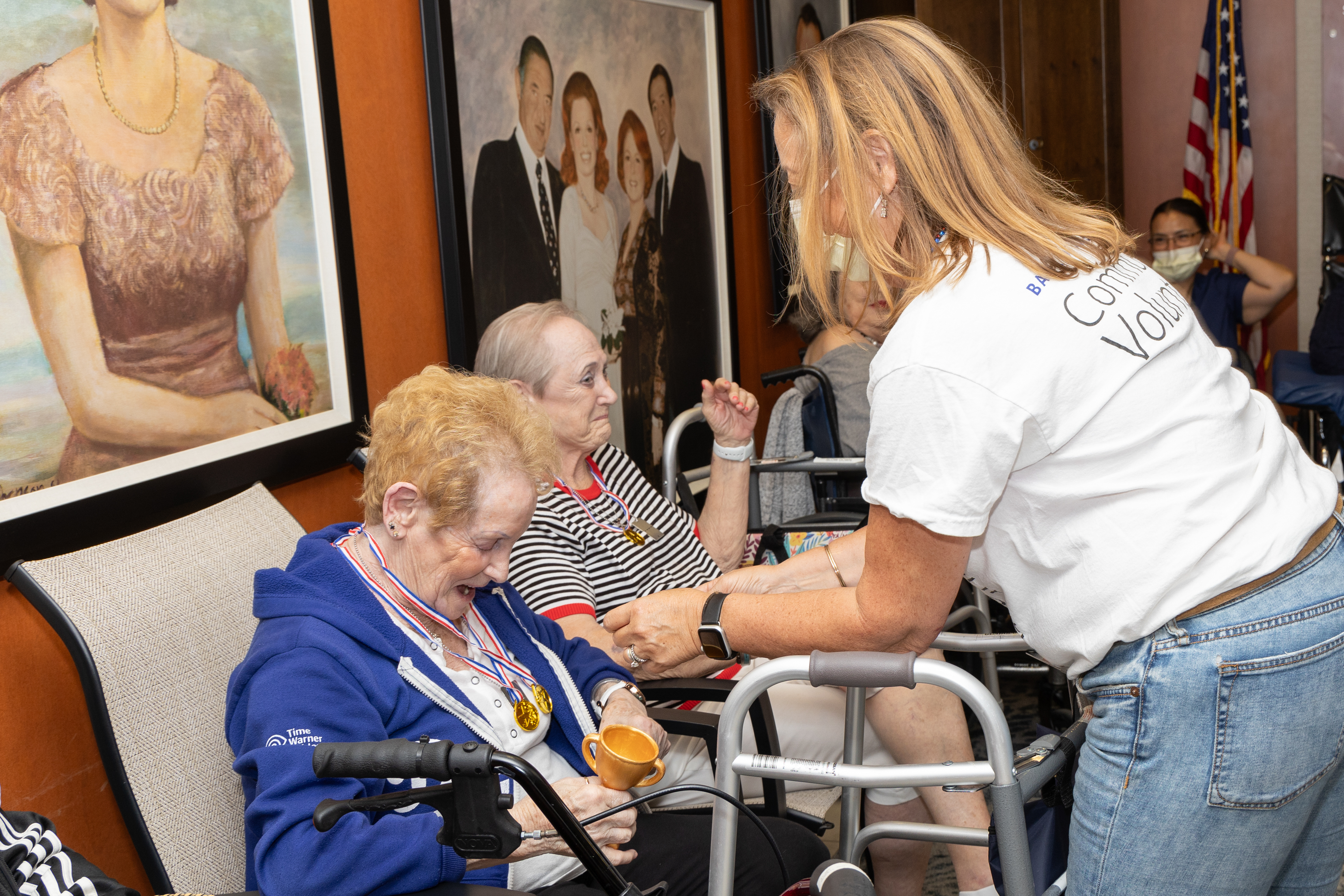Olympics at LAJH with Bank of America


The Olympic Spirit Soared at Los Angeles Jewish Health Thanks to Winning Support from Bank of America
During a summer filled with exciting coverage of the 2024 Olympics in Paris, there was another, event right here in Los Angeles that brought talented athletes out to shine. This August, Los Angeles Jewish Health hosted its own Senior Olympics, engaging dozens of residents of the Joyce Eisenberg-Keefer Medical Center in an afternoon of fun and stimulating activities, enabling them to join in the celebratory spirit inspired by the Paris games.
Critical to the success of the Senior Olympics was the outstanding participation of nearly 20 staff members from Bank of America, including Larry Schnaid, past president of Los Angeles Jewish Health’s support group, The Guardians. Led by Judy Friedman-Rudzki, director and senior treasury officer at Bank of America and LAJH’s current board chair, the energetic group were active participants as part of the bank’s long-time dedication to volunteerism and civic engagement. Bank of America encourages its more than 200,000 employees to be active in their local communities, to support the organizations that revitalize their communities. Collectively, bank employees log millions of volunteer hours each year.
“Bank of America believes its employees should give back because we are part of the tapestry of the community,” notes Judy Friedman-Rudzki, director and senior treasury officer at the bank and LAJH’s new board chair. “I am thrilled that, through events like the Senior Olympics, I can help bring two fantastic organizations—LAJH and Bank of America— together to make a critical difference for seniors in Los Angeles and beyond.”
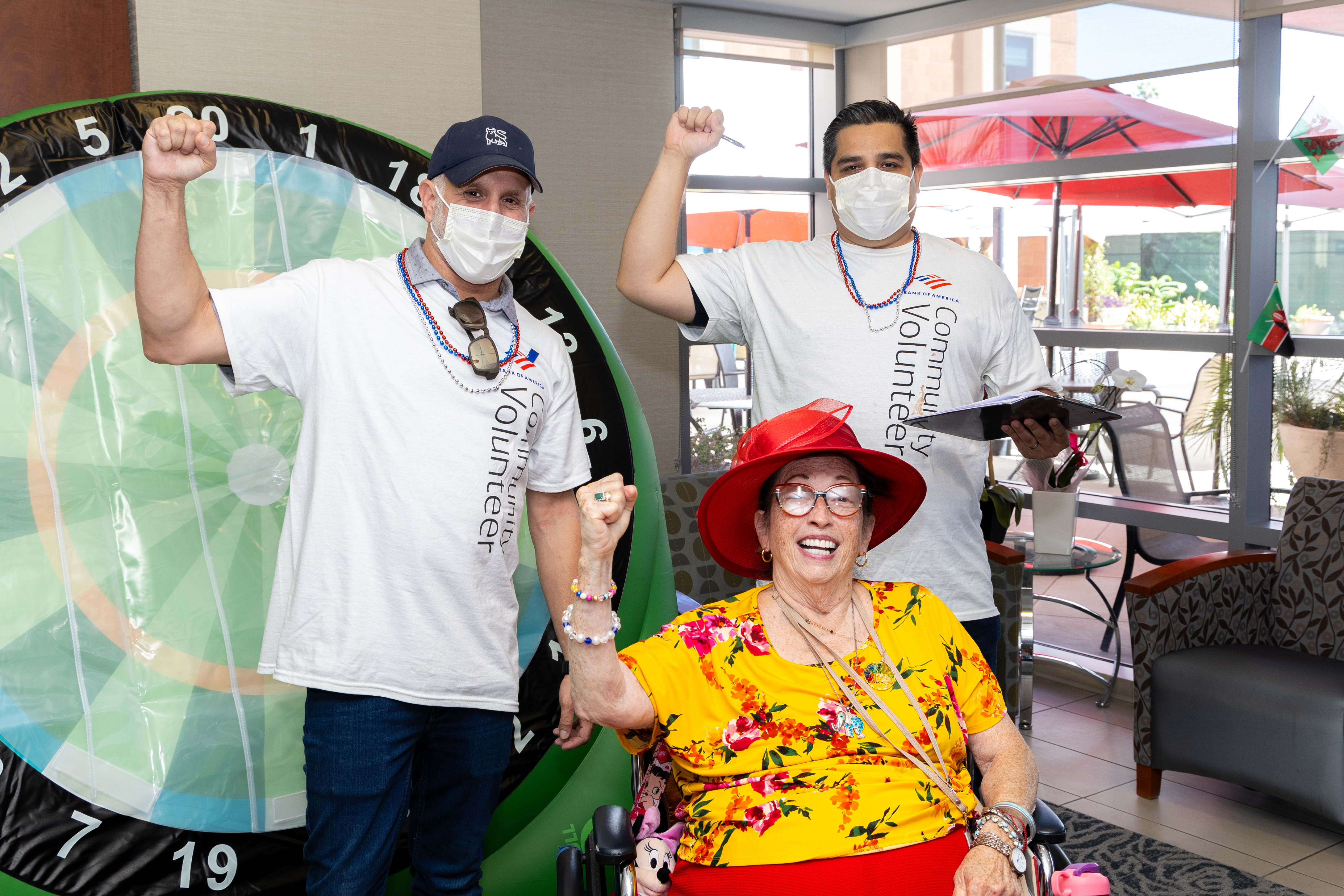
These types of collaborations help LAJH improve the health and well-being of thousands of seniors each year. “Judy and her dedicated colleagues at Bank of America are wonderful partners with us,” says Dale Surowitz, LAJH’s president and chief executive officer. “The generosity of groups like theirs helps extend our reach into the community and bolsters our impact as a key health resource for so many seniors citywide.”
The Senior Olympics event was classic LAJH—finding creative ways to engage and challenge seniors as they enjoyed the company of fellow residents, staff and especially the new friendships made with the outstanding Bank of America volunteers. LAJH’s staff lead for planning and orchestrating the event was Susan Leitch, director of therapeutic activities. “Programs like this promote socialization, friendly competition, and feelings of self-worth and satisfaction among our residents. They also instill a sense of camaraderie between residents and their peers,” she says. “This Senior Olympics event was fantastically successful: The day after, residents kept asking when we’d be having the next one. We have already started to plan a version of the games for next year!”
Participating residents had six games to test their skills: Tic-Tac-Toe, Giant Dartboard (using cloth balls instead of darts), Basketball, Badminton, Cornhole, and Bowl Chipper, a variation on golf. All games were held indoors, keeping residents nice and cool from the late summer San Fernando Valley heat. The lobby and multipurpose room were decorated in the spirit of the Olympics, including flags from around the world and banners hanging from the ceiling, lending the space an international air.
Participants included 101-year-old LAJH resident Sadie Migden and Suzanne Blum, an 86-year-old resident who stopped by to check out the event, which she says was indicative of the level of care LAJH puts into everything it does. “LAJH does so many things well,” she says. “This is the best place in the city for skilled nursing care; you can rest assured that if you need help with something, you can find that help here.”
Click here for a full gallery of images from the Resident Olympics with Bank of America
